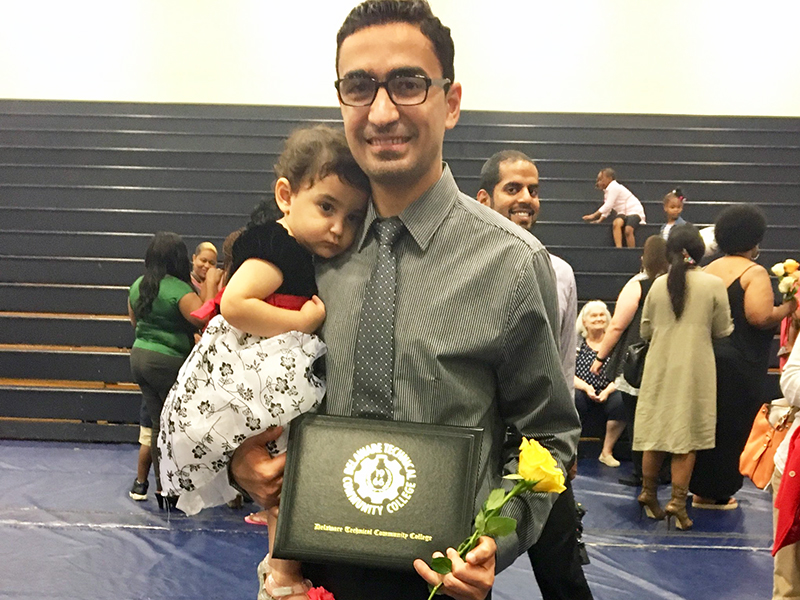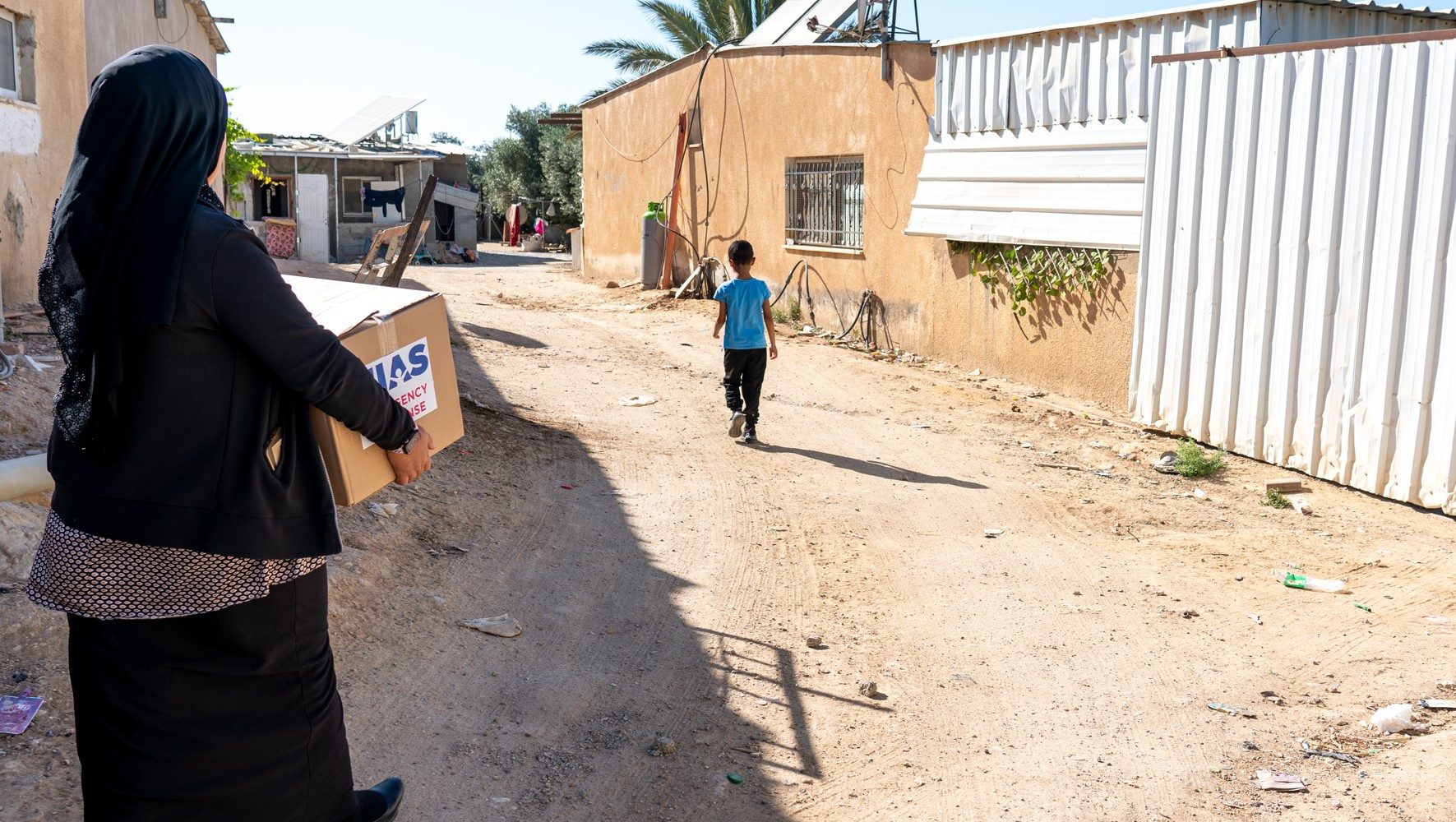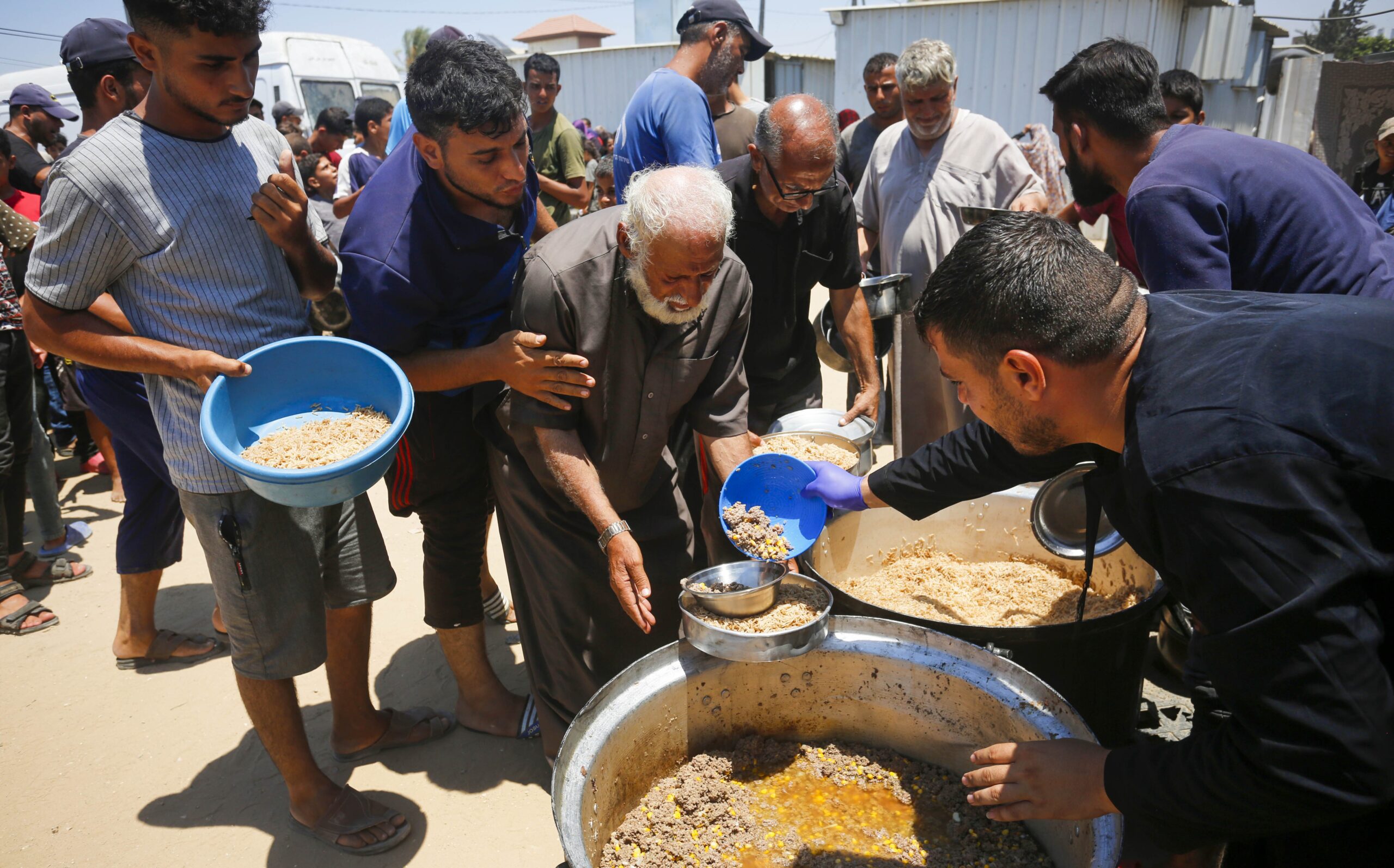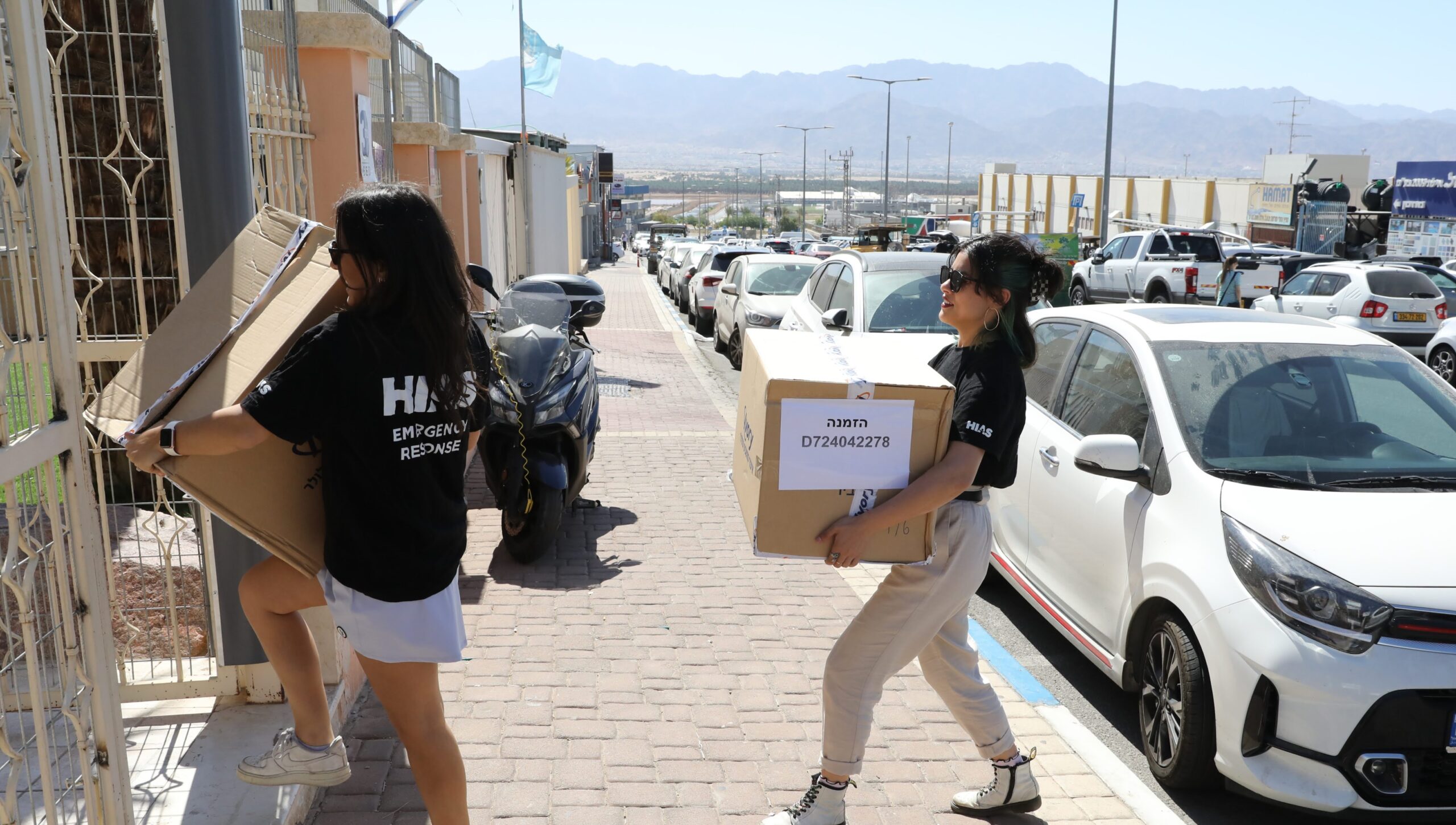Resettled Syrian Refugee Graduates Top in Class
By Gabe Cahn, HIAS.org
May 18, 2018

Amin, a 31-year-old Syrian refugee resettled to Delaware, holds his daughter and his diploma after graduating at the top of his class from Delaware Technical Community College's JAVA Academy, May 15, 2018.
“I’m a daily learner,” Amin says. “I like to learn everyday, especially in the IT field.”
Originally from Syria, Amin, 31, was resettled together with his wife by HIAS’ local partner Jewish Family Services of Delaware in February 2017.
“My wife and I decided early on that we wanted to be independent, and worked to develop our skills to fit into the market,” Amin tells HIAS.org.
He came to the United States with a degree in computer science, but quickly learned that continuing to work in IT would require a U.S. certification.
On Tuesday, May 15, Amin held true to his aspiration for self-sufficiency, graduating at the top of his class from Delaware Technical Community College's JAVA Academy.
The comprehensive course is designed for students with bachelor’s degrees who are seeking upward mobility as JAVA developers or software engineers.
In addition to earning a full scholarship to attend the eight-month program, Amin also tutored his classmates, helping them with their labs and final projects and expanding his personal and professional network.
“This class was a treasure for me,” he says.
From July 2017 until March 2018, Amin spent anywhere between 25 to 30 hours a week at school and studying, and 20 hours a week delivering pizzas to maintain an income stream.
Thanks to the new certification, he is now in the final round of interviews to become a software engineer at a major financial institution.
Amin first learned about the Delaware Tech course from a college magazine a volunteer had dropped off.
The volunteer, Ann Thomas, who Amin refers to as “Mom,” and considers to be part of the family, is a member Red Clay Creek Presbyterian Church in Wilmington and has been helping he and his wife settle into their new lives in Delaware.
She took Amin to the DMV to get his driver’s license when he first arrived and continues to help his wife, who for now doesn’t drive, get to and from appointments when Amin is at work.
“When I saw the article about the JAVA program,” he says, “I called her and said, ‘Yeah, Mom, I’m so interested in this how do I find out more information?’”
Soon after, the two were on their way to Delaware Tech to find out how to apply, only to discover that the deadline was the very same day.
Amin hadn’t prepared, but the admissions woman told him: “This is your chance, take it or you have to apply next year.”
He rolled the dice and took the exam cold, but did well enough to move on to the interview round and ultimately, earn the scholarship.
As he awaits news about the job, he has been awarded a six-month online course through the online learning platform Udacity, to earn a “Nanodegree” funded by Google. The opportunity came out of a Grow with Google challenge Amin participated in for three months.
When asked how his success speaks to the broader topic of refugees who come to this country, he says, “the strength of the American community comes from diversity.”
“It’s a good idea to welcome refugees who really need help, because they will return it back to the community.”
“Voluntarily tutoring classmates for eight months while also working and being a student wasn’t easy, but every person I helped graduated with me.”
Amin and his wife are two of the 2,000 Syrian refugees who have been admitted to the United States in the first 16 months of the Trump Administration, including just 11 thus far in 2018. For comparison, more than 17,000 Syrians found safety here during the final 16 months of the Obama Administration.
He says there are a lot of misconceptions about refugees, including that they don’t pay taxes in the U.S. or that they are somehow dangerous.
“A refugee is a legal immigrant who has been through a long term screening process—a person who doesn’t have a choice but to leave his country,” he says.
“I didn’t leave my country because I wanted to travel or because I wanted to go to Western countries. It’s not for tourism. A refugee is a person who was forced to leave, to leave his family, his friends, and the place he grew up.”
Amin’s mother, who he has not seen in more than six years, has been a refugee in Northern Iraq for three years. He hopes that she will be able to join him soon, but until that day, he plans to continue living, working, giving back, and most importantly: learning.


